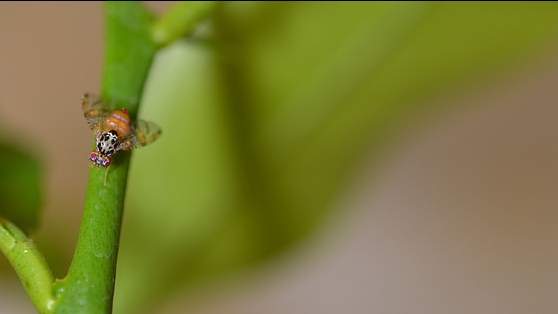
The project aims to expand the market opportunities for developing countries in order to participate fully in trade of plant products, by enhancing competency and confidence in applying Systems Approach through the use of innovative decision support tools. The application of the Beyond Compliance tools will contribute to the development of trade proposals, enhancement of market negotiations, mapping out of phytosanitary risks and actions to be undertaken along the production chains to ensure high quality production of plant products, identification of the most feasible and efficient pest management options and the strengthening of collaboration on national levels among the stakeholders involved in international trade.
A news item on training provided under the project is available here.
Check out the new Systems Approach webpage and find out more about the decision support tools.
Developing countries relying on agricultural production identify export of plant and plant products as key to their economic development. However, international trade of plant products can also present a number of risks in terms of the introduction of invasive pest, which can endanger the natural plant resources and managed crops, biodiversity and forest production. An effective plant health system operated by the National Plant Protection Organization (NPPO) in each country will permit to manage these risks whilst permitting the trade to flow smoothly. NPPOs use Pest Risk Analysis (PRA) to estimate the risk from a specific trade and to find the management options that will keep the trade "safe".
The goal of the project is to improve the export opportunities of plant products in developing countries through better capacity to deal with phytosanitary issues during market access negotiations and more options for managing pest risks. The opportunities will be based on the wider inclusion of more effective and efficient options in market access negotiations or for resolving issues when trade is disrupted. This will be achieved by enhancing competency and confidence in using a Systems Approach in pest management. The project will also facilitate better implementation of the International Standards for Phytosanitary Measures (ISPMs) no. 2 (Guidelines for PRA), no. 11 (PRA for quarantine pests), no. 14 (The use of Integrated Measures in a Systems Approach for Pest Risk Management), no. 21 (PRA for regulated non-quarantine pests) and no. 24 (Guidelines for the determination and recognition of equivalence of phytosanitary measures).
The project builds upon the results of the project "Beyond Compliance: Integrated Systems Approach for Pest Risk Management" (STDF/PG/328) and will uptake the Systems Approach tools as a means of increasing understanding and confidence in use of combinations of pest risk management measures. These tools have already been tested, improved and validated on limited cases in the subregion of South East Asia. This project will increase the cases while embedding expertise to additional countries and regions.
Trade cases selected from at least two regions or subregions
Project cases will be established and agreements will be signed with NPPOs who will complete the trade cases. A global call was issued by IPPC to identify four trading cases for a minimum of two countries in regions other than South East Asia. Facilitators to be trained will be identified and the training planned accordingly.
Selected cases are initiated and facilitators are trained
Once the training materials have been prepared, a total of four facilitators will be trained. The training materials will also be translated. Stakeholders for cases will be identified.
Selected cases are developed
Cases will be developed; case material will be verified on country level. The tools will be applied to cases. Case reports and evaluations will be conducted.
Implementation of cases
Following meetings, cases will be submitted to potential trade partner NPPOs. Learned lessons and experiences will be disseminated more widely to other NPPOs.